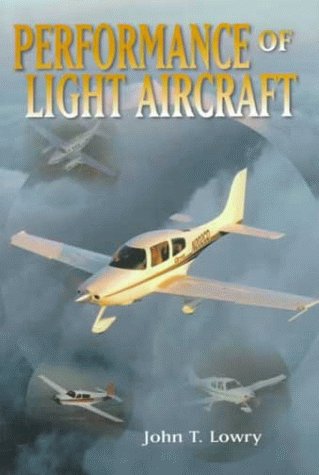Library of Flight
1 total work
Pilots, aviation students, kitplane builders, aircraft fleet operators and aeronautical engineers can all determine how their propeller-driven airplanes will perform, under any conditions, by using the step-by-step bootstrap approach introduced in this book. A few routine flying manoeuvres (climbs, glides, a level speed run) will give the necessary nine numbers. High-school level calculations then give performance numbers with much greater detail and accuracy than many other methods - for the reader's individual aircraft. Many practical flying topics, concepts that will make readers safer and more efficient pilots, are found in this guide. Among them: as a pilot banks to begin turning around at high altitude in a canyon, their airplane starts descending toward the rocks below! What should their first response be? The steady manoeuvring charts found in this book offer a full and graphical picture of the several competing factors needed to understand. For precision flying, pilots need to know their airplane's drag characeristics. A few glides, and a few minutes with a calculator, will reveal the two numbers needed to uncover an airplane's drag polar.The cruise performance section of this book includes ""scaling rules"" that explain how to take a section of a cruise performance table (for one weight, one altitude) and extend it to cover other altitudes or other weights. Is it better to take off uphill into the wind or downhill with the wind? This book illustrates quickly how to figure out which way to direct an airplane for any strength wind.
